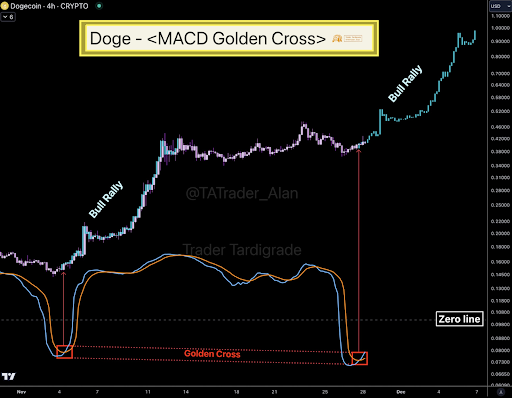ARTICLE AD
The SEC is changing its previous position, specifically regarding the classification of various digital tokens.
The US Securities and Exchange Commission (SEC) appears to be dancing to the tune of Binance, the world’s largest crypto exchange in terms of trading volume. This follows after a recent court development saw the regulator update its legal stance against Binance as the case continues to unfold.
In the latest development, the SEC is seeking permission to amend its complaint against Binance, which may include new allegations regarding “Third Party Crypto Asset Securities”.
Previously, the SEC had sought to classify several high-profile cryptocurrencies, including Solana (SOL), as securities. This would have meant that the said tokens would be subjected to the same regulatory scrutiny and compliance requirements that apply to traditional securities. However, in a recent legal filing, the SEC appears to be ready to withdraw its demand to classify these tokens under securities laws. This move is expected to have an impact not limited to Binance’s operations alone but on the broader crypto sector, potentially ushering in a new era in regulation.
SEC vs Binance: A Shift in Regulatory Approach
For many observers and key industry participants, the SEC’s decision to amend the complaint shows that the regulator might be adopting a new approach to crypto regulation. The agency’s filing states that it aims to seek approval to amend its complaint, “obviating the need for the Court to issue a ruling as to the sufficiency of the allegations as to those tokens at this time”. With these new requests, the SEC appears to have a newly found understanding of the digital asset space.
As would be expected, this paradigm shift could potentially make room for a more accommodating regulatory framework. One that is poised to allow innovative minds to flourish while still paying proper attention to potential risks associated with cryptocurrencies.
Meanwhile, it might be worth noting that the SEC’s initial push to categorize cryptocurrencies as securities wasn’t always a witch-hunt as widely purported. Rather, it was part of a broader strategy by the SEC to ensure that these assets comply with existing financial regulations.
Several times in the past, the agency has argued that certain tokens, due to their nature and distribution, fell under the definition of securities and should be governed accordingly. However, the crypto community kicked back vehemently against this position. Their arguments were that such classifications were overly broad and stifling for technological advancement.
Implications for the Crypto Sector
As earlier noted, the effect of this withdrawal of the classification request would be felt throughout the crypto industry. For one, exchanges such as Binance and other projects within the space can heave a sigh of relief. That is, from the regulatory pressure that has overshadowed the industry. This would undoubtedly also encourage more innovation and investment in the sector. That is because stakeholders would feel less threatened by stringent regulatory constraints.
The biggest achievement that the SEC’s revised stance could bring is that it prepares the ground for a more balanced regulatory approach that differentiates between various types of digital assets. Such a move could lead to the development of new regulatory frameworks. That is, the kind of frameworks that better accommodate the unique characteristics of various cryptocurrencies without taking away the need for investor protection.

 4 months ago
27
4 months ago
27 

